
Find Help
More Items From Ergsy search
-

Are there any long-term effects of Chikungunya infection?
Relevance: 100%
-

What is Chikungunya virus infection?
Relevance: 69%
-

Can Chikungunya virus infection be treated?
Relevance: 66%
-

Who is at risk for severe Chikungunya infection?
Relevance: 65%
-

How is Chikungunya virus infection diagnosed?
Relevance: 64%
-

How long do Chikungunya symptoms last?
Relevance: 54%
-
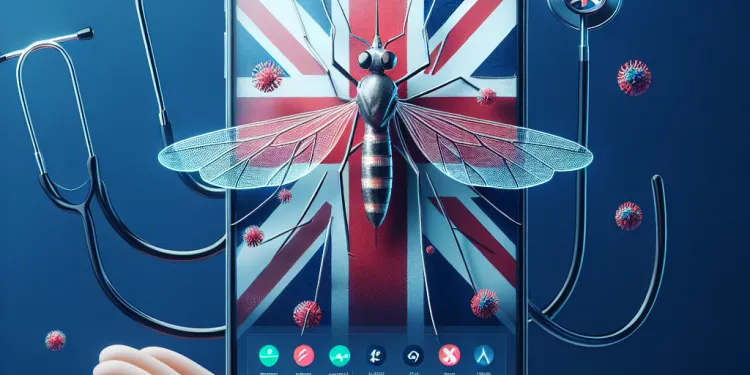
Is Chikungunya fatal?
Relevance: 53%
-
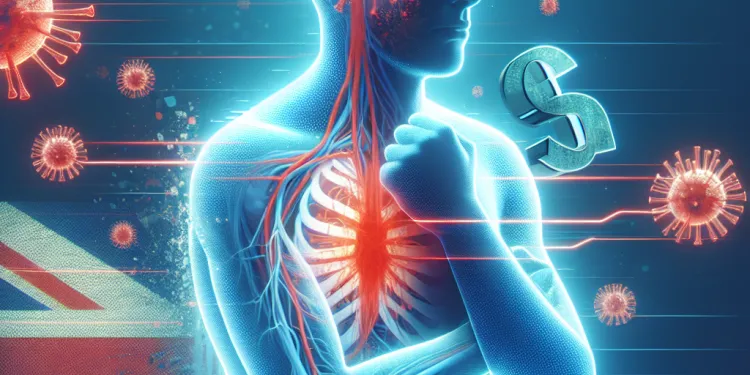
What are the symptoms of Chikungunya virus infection?
Relevance: 51%
-

How is Chikungunya virus transmitted?
Relevance: 51%
-
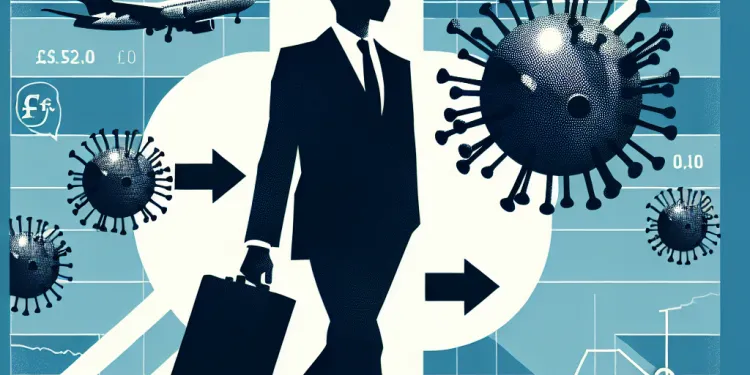
Can Chikungunya be transmitted from person to person?
Relevance: 48%
-

How can Chikungunya virus be prevented?
Relevance: 47%
-

Are there any long-term effects of gonorrhoea?
Relevance: 47%
-

Where do Chikungunya outbreaks typically occur?
Relevance: 45%
-

What are the long-term effects of sunburn?
Relevance: 43%
-

Does ketamine have long-term effects?
Relevance: 39%
-

Are there any long-term effects of using Botox?
Relevance: 38%
-

Are there any long-term effects of using Ozempic?
Relevance: 38%
-

Can whiplash have long-term effects?
Relevance: 38%
-
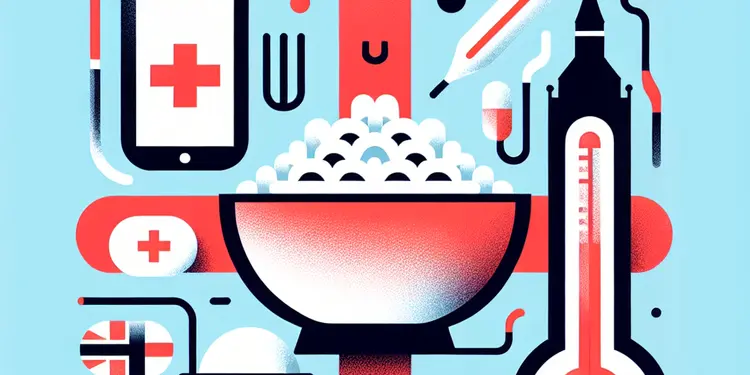
Are there any long-term effects of rice food poisoning?
Relevance: 38%
-

What are the long-term effects of a heart attack?
Relevance: 37%
-

Are there any long-term side effects of the COVID jab?
Relevance: 37%
-
What are the long-term effects of untreated eating disorders?
Relevance: 35%
-

Can drink spiking cause long-term health effects?
Relevance: 34%
-

What are the long-term effects of repeated heatwave exposure?
Relevance: 34%
-

Is there a vaccine for Chikungunya virus?
Relevance: 33%
-
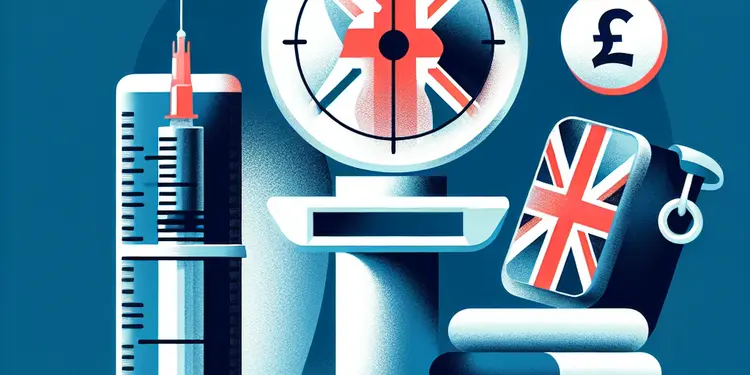
Are there any side effects from long-term use of weight loss jabs?
Relevance: 31%
-

Has chikungunya virus been reported in the UK?
Relevance: 31%
-

Can meningitis cause long-term complications?
Relevance: 31%
-

What are the symptoms of Nipah Virus infection?
Relevance: 29%
-

Mycobacterium chimaera infection
Relevance: 27%
-
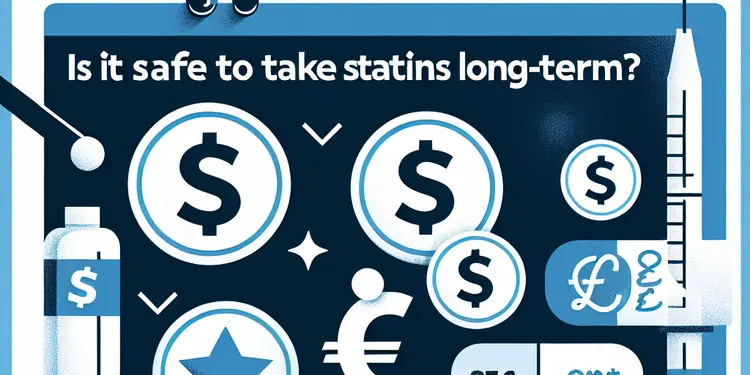
Is it safe to take statins long-term?
Relevance: 27%
-

Can E. coli infections be treated?
Relevance: 27%
-
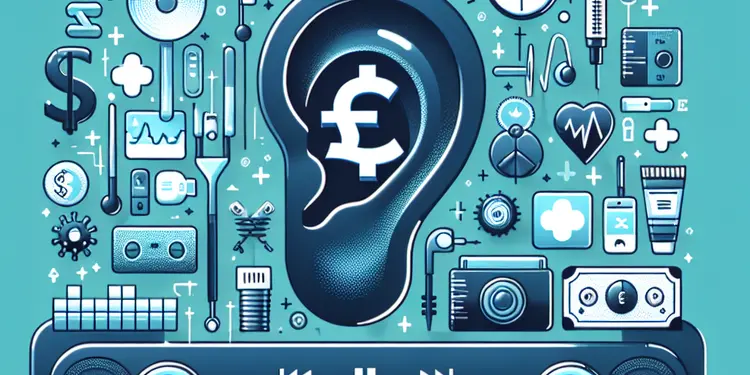
Can ear infections lead to tinnitus?
Relevance: 27%
-

Can flesh-eating disease cause long-term complications?
Relevance: 27%
-

Is postnatal depression a long-term condition?
Relevance: 26%
-

Do antibiotics work on viral infections?
Relevance: 26%
-

Are E. coli infections contagious?
Relevance: 26%
-

Does coffee consumption have any long-term heart health effects?
Relevance: 26%
-

Are there symptoms of an HPV infection?
Relevance: 25%
-

Is it safe to take weight loss jabs long-term?
Relevance: 25%
Understanding Chikungunya
Chikungunya is a viral disease transmitted to humans through mosquito bites, primarily from the Aedes aegypti and Aedes albopictus species. These mosquitoes are prevalent in tropical and subtropical regions, and the disease is characterized by an abrupt onset of fever, joint pain, muscle pain, headache, nausea, fatigue, and rash.
Short-Term Symptoms
While the acute phase of a Chikungunya infection typically lasts for a few days to a couple of weeks, most people recover fully. The initial symptoms can be debilitating, with high fever and severe joint pain affecting the quality of life. Joint pain is a hallmark symptom, often more intense than the pain experienced in other viral infections. Additionally, some patients may experience gastrointestinal issues, and the rash associated with the disease can be widespread and itchy.
Potential Long-Term Effects
One of the most significant long-term effects of Chikungunya is chronic joint pain and stiffness. According to studies, a considerable number of patients continue to experience joint-related symptoms long after the acute phase of the illness has ended. This post-viral arthritis or arthralgia can persist for months or even years. It can impact daily activities and quality of life, akin to rheumatoid arthritis. The joint pain tends to recur or linger, especially in older adults and those with prior joint issues.
In some cases, patients may also experience fatigue, headaches, and depression as long-term effects. These symptoms can sometimes be mistaken for other chronic conditions, making diagnosis and treatment challenging. Furthermore, during an outbreak, the healthcare systems might face a surge in demand for chronic pain management and rehabilitation services.
Management and Care
Management of long-term effects primarily focuses on alleviating symptoms. Non-steroidal anti-inflammatory drugs (NSAIDs), physical therapy, and sometimes corticosteroids are recommended to manage pain and inflammation. It is essential for patients to maintain regular follow-ups with healthcare providers to monitor symptoms and adjust treatment plans as necessary. There is currently no specific antiviral medication or vaccine for Chikungunya, so prevention through mosquito control and bite avoidance remains crucial.
Continuing Research
Research is ongoing to better understand the long-term implications of Chikungunya and develop more specific treatment protocols. Studies are focusing on the virus's behavior in the human body, immune response, and potential genetic factors influencing disease outcomes. Understanding these aspects could lead to improved therapeutic strategies and preventive measures in the future.
Conclusion
While many people recover from Chikungunya without any lasting effects, a significant proportion may endure long-term joint pain and other secondary health issues. Awareness and appropriate management of these symptoms are vital to improving the quality of life for affected individuals. Enhanced understanding and preventive strategies are essential to mitigate the long-term impact of Chikungunya.
Understanding Chikungunya
Chikungunya is a disease caused by a virus. People get it when they are bitten by certain mosquitoes. The mosquitoes that spread it are called Aedes aegypti and Aedes albopictus. These mosquitoes live in warm places. If you get Chikungunya, you might suddenly get a fever. You may also feel pain in your joints and muscles, have a headache, feel sick, feel tired, and have a rash on your skin.
Short-Term Symptoms
The first signs of Chikungunya usually last a few days to a couple of weeks. Most people get better after that. But at first, the symptoms can be very bad. You might feel very hot with a fever, and your joints may hurt a lot. This joint pain is worse than pain from some other viruses. Some people may also have stomach problems, and the rash can spread and feel itchy.
Potential Long-Term Effects
Sometimes, even after the Chikungunya infection is over, your joints can still hurt for a long time. This pain can last for months or years and make it hard to do everyday things. It is like a joint disease called rheumatoid arthritis. Older people or those who already had joint problems before might feel this more. Some people also feel very tired, have headaches, or feel sad and worried. This can make it hard to find out what is wrong and get help. During an outbreak, more people might need doctors to help them manage long-lasting pain.
Management and Care
If you still have symptoms after Chikungunya, doctors can give you medicine to help with the pain and swelling. They might suggest taking medicines like NSAIDs, doing physical exercises, or sometimes using stronger medicines like corticosteroids. It’s important to regularly see your doctor to check how you are feeling and to change your treatment if needed. There is no special medicine or vaccine to stop Chikungunya yet, so staying away from mosquitoes and not getting bitten is very important.
Continuing Research
Scientists are always trying to learn more about Chikungunya. They want to know what happens in the body when someone has the virus and why some people get very sick. They are studying how our body fights the virus and if any genes affect how we feel. This research can help them make better treatments and find ways to stop people from getting Chikungunya in the future.
Conclusion
Most people get better from Chikungunya without any problems. But some people may have joint pain and other health issues that last a long time. Knowing about these problems and how to manage them can help people feel better. It's important for doctors and scientists to find more ways to help people who have had Chikungunya and stop it from spreading.
Frequently Asked Questions
What is Chikungunya?
Chikungunya is a viral disease transmitted to humans by infected mosquitoes, causing fever and severe joint pain.
What are the long-term effects of Chikungunya?
Some individuals may experience prolonged joint pain, fatigue, and occasional relapses of symptoms, which can last for several months.
How long do Chikungunya symptoms typically last?
Acute symptoms usually last from a few days to a couple of weeks, but joint pain and stiffness can persist for months or even years in some people.
Can Chikungunya cause chronic arthritis?
Yes, Chikungunya can lead to chronic arthritis, particularly in older individuals and those with pre-existing joint disorders.
Is there a treatment for chronic joint pain from Chikungunya?
Treatment typically focuses on pain management using anti-inflammatory drugs, physical therapy, and in some cases, corticosteroids.
Can Chikungunya impact mental health in the long term?
Chronic pain from Chikungunya can lead to psychological effects such as depression or anxiety due to decreased quality of life.
Does Chikungunya have any long-term effects on the immune system?
There is no evidence that Chikungunya causes long-term damage to the immune system, but it can lead to prolonged inflammation.
Can children experience long-term effects from Chikungunya?
Children can experience joint pain and fatigue, though long-term complications are less common compared to adults.
Are there any neurological complications associated with long-term Chikungunya infection?
Though rare, some individuals may experience neurological effects like altered mental status or sensory changes.
Can Chikungunya cause any long-term cardiovascular issues?
There is no consistent evidence directly linking Chikungunya to long-term cardiovascular problems, though further research is needed.
Is there a vaccine to prevent Chikungunya and its long-term effects?
As of now, there is no commercial vaccine available. Prevention mainly involves reducing mosquito exposure.
Can individuals who recovered from Chikungunya be reinfected?
Once infected, individuals typically develop immunity, but the duration and completeness of this immunity remain under study.
How can I manage long-term joint pain from Chikungunya at home?
Management includes using pain relievers, staying active with exercise, and applying hot/cold compresses to the affected areas.
Are certain populations more at risk for long-term effects of Chikungunya?
Elderly individuals and those with pre-existing health issues, such as arthritis, are more susceptible to long-term effects.
How does the long-term prognosis of Chikungunya compare to other viral illnesses?
Chikungunya is notable for its potential to cause prolonged joint pain compared to many other viral infections.
What research is being done on the long-term effects of Chikungunya?
Research is ongoing to better understand and develop treatments for the chronic symptoms associated with the disease.
Can lifestyle changes help with long-term recovery from Chikungunya?
Adopting a healthy diet, regular exercise, and adequate rest can support recovery and manage symptoms more effectively.
Does Chikungunya infection increase the risk of other diseases?
Chikungunya mainly causes symptoms related to joint and muscle pain, without directly increasing the risk of other diseases.
Can Chikungunya cause permanent damage?
While permanent damage is rare, some individuals may experience long-term joint or muscular discomfort.
Are long-term effects of Chikungunya different in various geographic regions?
There may be variations in long-term effects due to differing healthcare access and pre-existing health conditions in various regions.
What is Chikungunya?
Chikungunya is a sickness caused by a virus.
It makes you feel sore and have a fever. Mosquitoes spread this virus.
To stay safe, try to avoid mosquito bites.
You can wear insect repellent or long-sleeved clothes to help keep mosquitoes away.
Chikungunya is a sickness caused by a virus. You can get it from a mosquito bite. It makes you have a high temperature and hurts your joints a lot.
What happens after you have Chikungunya for a long time?
Chikungunya is a sickness from a mosquito bite.
Some people feel better in a few days or weeks, but some may feel bad longer.
- Your joints might hurt for months or years after getting sick.
- You might feel tired all the time.
- Sometimes it's hard to remember things or focus.
If you're not feeling better, talk to a doctor. They can help with medicine or other advice.
Here are some tips to feel better:
- Rest a lot.
- Drink water to stay hydrated.
- Eat healthy food.
- Do gentle exercises, like stretching.
- Ask a friend or family member for help if you need it.
Some people might have joint pain that lasts a long time. They might also feel very tired and have their symptoms come back sometimes. This can happen for several months.
How long do Chikungunya symptoms usually last?
Chikungunya is an illness caused by a virus.
When you get sick with Chikungunya, you might have:
- Fever
- Joint pain
- Headache
- Muscle pain
- Rash
These symptoms can last for about 1 to 2 weeks. But sometimes, joint pain can stay for a longer time.
If you feel unwell, tell an adult and go to a doctor. The doctor can help make you feel better.
Using a calendar can help you track how long you have been sick.
Ask a family member or friend to help you understand any difficult words.
When you feel sick, it can last a few days up to two weeks. But your joints might hurt or feel stiff for a long time, even months or years, for some people.
Can Chikungunya cause long-lasting joint pain?
Chikungunya is a sickness that can make your joints hurt. Sometimes, this pain can last a long time. This long-lasting pain is called chronic arthritis. If you get Chikungunya, and your joints hurt for a long time, it might be because of this.
If you or someone you know is having trouble understanding this, you can ask for help from a doctor or a nurse. You can also use pictures or simple videos to learn more about Chikungunya and joint pain.
Yes, Chikungunya can cause long-lasting joint pain. This is more common in older people or those who already have joint problems.
Can you help joint pain from Chikungunya?
Treatment usually helps to manage pain. Doctors might give you medicine to help reduce swelling. This is called anti-inflammatory drugs. You may also do exercises to help you feel better. Sometimes, doctors give special medicine called corticosteroids.
Can Chikungunya affect your mental health for a long time?
When people have a disease called Chikungunya, they can have pain that lasts a long time. This can make them feel very sad or worried. They might feel this way because they can't do things they like as much anymore.
Here are some things to help:
- Talk to a doctor about your feelings.
- Write down how you feel. It can help you understand your feelings better.
- Try doing things that make you happy.
- Look for support groups to talk to other people with similar problems.
Can Chikungunya cause long-lasting problems for the body's defenses?
Some people ask if getting Chikungunya makes their body's defense system weak for a long time.
To understand better, you can talk to a doctor. Doctors can help explain how Chikungunya affects the body.
Reading with a friend or family member can help too. They can help make the words easier to understand.
Chikungunya is a type of sickness. It does not hurt the body's defenses for a long time. But it can cause swelling in the body that lasts for a while.
Can children have Chikungunya problems for a long time?
Kids can sometimes feel pain in their joints, like knees or elbows. They might also feel tired a lot. Usually, these problems don't last very long in kids, and they don't have as many big problems as grown-ups do.
Can Chikungunya make your brain or nerves sick for a long time?
Sometimes, people might feel different in their mind or senses. This is not very common, but it can happen.
If you or someone you know feels this way, it might help to talk to a doctor. You can also use tools like calm music or breathing exercises to feel better.
Can Chikungunya make heart problems last a long time?
We do not know for sure if Chikungunya causes heart problems for a long time. Scientists need to study this more.
Is there a vaccine to stop Chikungunya and its long-lasting effects?
There is no vaccine to stop Chikungunya yet. Scientists are working on it.
If you want to know more, you can:
- Ask a doctor or nurse for help.
- Use a computer or phone to look up Chikungunya.
- Watch videos about viruses and vaccines. They have pictures and sounds that make it easier to learn.
There is no vaccine you can buy right now. To stay safe, avoid mosquito bites as much as you can.
Can someone get Chikungunya again after getting better?
When a person gets sick, their body learns how to fight that illness. But we are still trying to find out how long this protection lasts and if it stops all future infections.
How can I take care of joint pain from Chikungunya at home?
Here are some simple ways to help with joint pain if you have Chikungunya:
- Rest: Try to rest your body and avoid too many activities.
- Stay Active: Gentle exercises like stretching can help keep your joints moving.
- Use Heat and Cold: Use a warm towel or cold pack on sore areas to feel better.
- Eat Healthy: Foods like fruits and vegetables help keep you strong.
- Drink Water: Drinking enough water is good for your body.
- Over-the-Counter Medicine: Medicines like paracetamol can help with pain. Ask an adult for help.
It's a good idea to talk to a doctor if pain lasts or is very strong.
To feel better, you can use medicine for pain. Keep moving with easy exercises. You can also use hot or cold packs on the sore spots.
Who is more likely to get sick for a long time from Chikungunya?
Some people might get sick for a long time if they catch Chikungunya. People who might get sicker include:
- Older people
- People with other health problems
- Babies
Doctors can help these people stay healthy. It's important to wash hands and keep away from mosquitos to stay safe.
Here are some tools that can help:
- Pictures to show what to do
- Simple videos about staying healthy
Older people and those who are already sick, like with arthritis, can get sick for a longer time.
What happens to people with Chikungunya compared to other virus sicknesses over a long time?
Here is a simple way to understand how people feel after they get better from Chikungunya, compared to other sicknesses caused by viruses.
- Chikungunya is a virus that can make your joints hurt for a long time.
- Many people feel better from other viruses more quickly.
- Chikungunya might take longer to recover from than other viruses.
If you or someone you know has Chikungunya, it can help to talk to a doctor. Doctors can give advice on how to feel better.
Support tools like reminders on your phone or asking an adult for help can make it easier to manage. Simple exercises or rest can also help with recovery.
Chikungunya is known for causing joint pain that can last a long time. This is different from many other viral infections.
Here are some ways to make reading easier: 1. **Use simple words:** Try to use easy and clear words. 2. **Short sentences:** Keep sentences short and to the point. 3. **Read aloud:** Listening while reading can help understand better. 4. **Use images:** Pictures can help explain the text. 5. **Text-to-speech:** Tools that read text out loud can be useful.What are scientists studying about the long-term effects of Chikungunya?
Scientists are trying to learn more about Chikungunya. They want to know how it affects people over a long time. Here is how they do it:
- They watch people who had Chikungunya for a long time.
- They write down how people feel months or years later.
- They look for ways to help people feel better.
If you want to learn more, you can:
- Ask a doctor to explain.
- Use a computer with text-to-speech to read aloud.
- Watch videos about Chikungunya for kids.
Scientists are working hard to find out more about the disease and how to help people feel better.
Can changing how you live help you get better from Chikungunya?
If you have Chikungunya, some things can help you feel better:
- Eat healthy food. Try to eat fruits, vegetables, and other good foods.
- Drink lots of water. It helps you stay strong.
- Rest your body. Sleep helps you heal.
- Do gentle exercises. It can make your muscles feel better.
- Stay calm and relaxed. Stress can slow down your recovery.
If reading is hard, you can use these tools:
- Ask someone to read it out loud to you.
- Use audiobooks or videos to learn more.
- Use a computer or tablet to make the text bigger.
Eating healthy food, exercising regularly, and getting enough sleep can help you get better and feel good.
Can Chikungunya Make You More Likely to Get Sick?
If you get Chikungunya, can it make you catch other illnesses more easily?
Here are some tips to help understand and answer this question:
- Use simple words and sentences to understand the question.
- Ask a doctor or nurse if you are worried or have questions.
- Read slowly and take breaks if you need to.
Chikungunya is a sickness that makes your joints and muscles hurt. It doesn’t make you get other sicknesses.
Can Chikungunya cause lasting harm?
Chikungunya is a virus that makes people sick. Sometimes, it can cause bad pain in the body. Most people get better after a while.
But for some people, the pain might stay for a long time, like in their joints. This can make moving hard. Doctors can help with medicine and exercises.
If you are feeling very bad or the pain does not go away, it is good to talk to a doctor for help.
It's not common, but some people might have pain in their joints or muscles for a long time.
Does Chikungunya affect people differently in different places?
People might be affected differently over time because of the healthcare they get and any health issues they had before. This can be different depending on where they live.
Useful Links
This website offers general information and is not a substitute for professional advice.
Always seek guidance from qualified professionals.
If you have any medical concerns or need urgent help, contact a healthcare professional or emergency services immediately.
Some of this content was generated with AI assistance. We’ve done our best to keep it accurate, helpful, and human-friendly.
- Ergsy carfully checks the information in the videos we provide here.
- Videos shown by Youtube after a video has completed, have NOT been reviewed by ERGSY.
- To view, click the arrow in centre of video.
- Most of the videos you find here will have subtitles and/or closed captions available.
- You may need to turn these on, and choose your preferred language.
- Go to the video you'd like to watch.
- If closed captions (CC) are available, settings will be visible on the bottom right of the video player.
- To turn on Captions, click settings .
- To turn off Captions, click settings again.
More Items From Ergsy search
-

Are there any long-term effects of Chikungunya infection?
Relevance: 100%
-

What is Chikungunya virus infection?
Relevance: 69%
-

Can Chikungunya virus infection be treated?
Relevance: 66%
-

Who is at risk for severe Chikungunya infection?
Relevance: 65%
-

How is Chikungunya virus infection diagnosed?
Relevance: 64%
-

How long do Chikungunya symptoms last?
Relevance: 54%
-

Is Chikungunya fatal?
Relevance: 53%
-

What are the symptoms of Chikungunya virus infection?
Relevance: 51%
-

How is Chikungunya virus transmitted?
Relevance: 51%
-

Can Chikungunya be transmitted from person to person?
Relevance: 48%
-

How can Chikungunya virus be prevented?
Relevance: 47%
-

Are there any long-term effects of gonorrhoea?
Relevance: 47%
-

Where do Chikungunya outbreaks typically occur?
Relevance: 45%
-

What are the long-term effects of sunburn?
Relevance: 43%
-

Does ketamine have long-term effects?
Relevance: 39%
-

Are there any long-term effects of using Botox?
Relevance: 38%
-

Are there any long-term effects of using Ozempic?
Relevance: 38%
-

Can whiplash have long-term effects?
Relevance: 38%
-

Are there any long-term effects of rice food poisoning?
Relevance: 38%
-

What are the long-term effects of a heart attack?
Relevance: 37%
-

Are there any long-term side effects of the COVID jab?
Relevance: 37%
-
What are the long-term effects of untreated eating disorders?
Relevance: 35%
-

Can drink spiking cause long-term health effects?
Relevance: 34%
-

What are the long-term effects of repeated heatwave exposure?
Relevance: 34%
-

Is there a vaccine for Chikungunya virus?
Relevance: 33%
-

Are there any side effects from long-term use of weight loss jabs?
Relevance: 31%
-

Has chikungunya virus been reported in the UK?
Relevance: 31%
-

Can meningitis cause long-term complications?
Relevance: 31%
-

What are the symptoms of Nipah Virus infection?
Relevance: 29%
-

Mycobacterium chimaera infection
Relevance: 27%
-

Is it safe to take statins long-term?
Relevance: 27%
-

Can E. coli infections be treated?
Relevance: 27%
-

Can ear infections lead to tinnitus?
Relevance: 27%
-

Can flesh-eating disease cause long-term complications?
Relevance: 27%
-

Is postnatal depression a long-term condition?
Relevance: 26%
-

Do antibiotics work on viral infections?
Relevance: 26%
-

Are E. coli infections contagious?
Relevance: 26%
-

Does coffee consumption have any long-term heart health effects?
Relevance: 26%
-

Are there symptoms of an HPV infection?
Relevance: 25%
-

Is it safe to take weight loss jabs long-term?
Relevance: 25%


